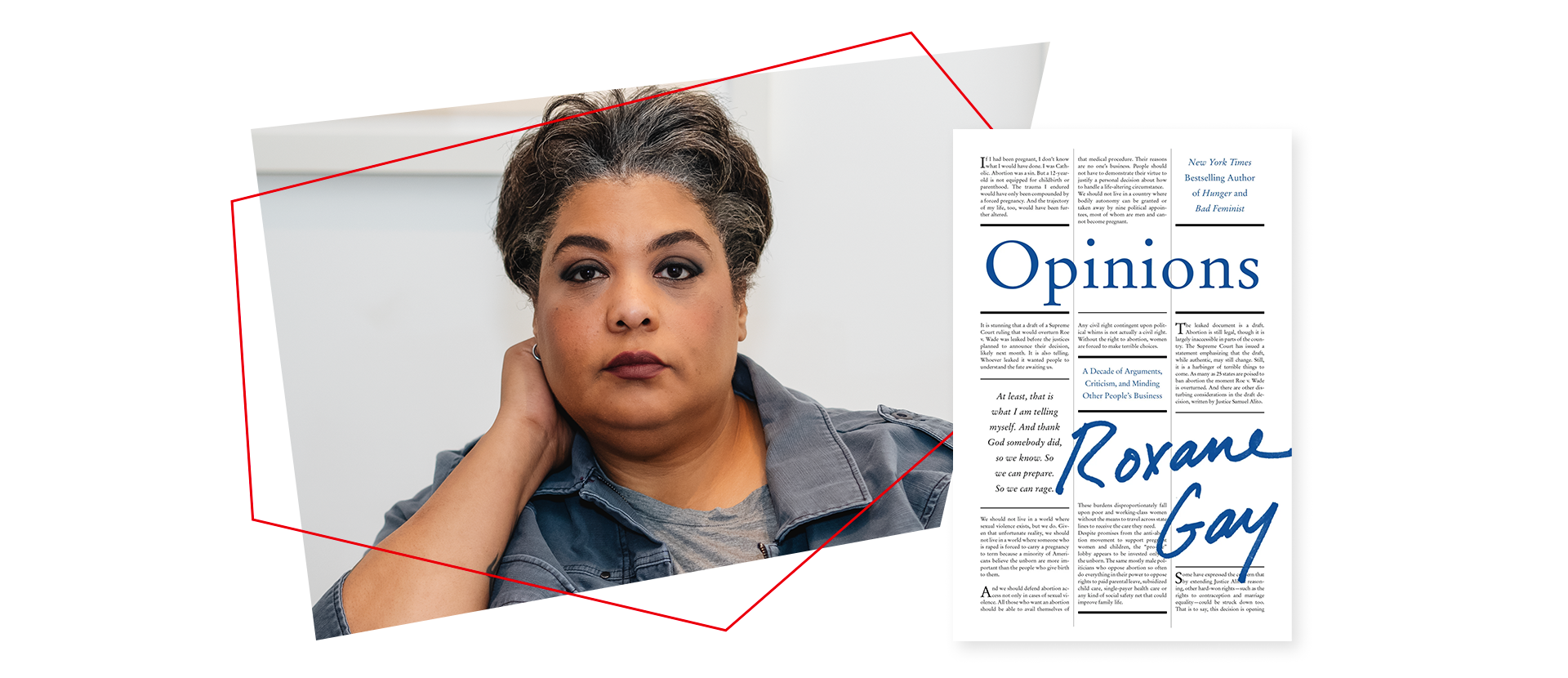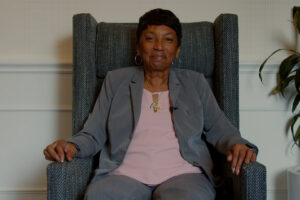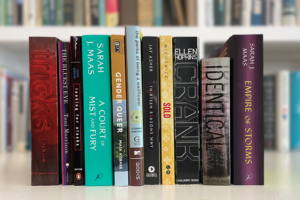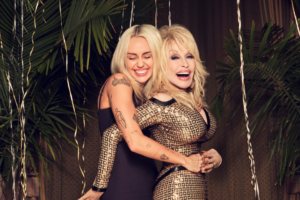
Interview: Roxane Gay Has Some Opinions
Nov. 29, 2023
It seems hard to imagine now, but there was a time when Roxane Gay felt shy about sharing her opinions. Fortunately, her solution was to write them down.
Gay’s latest book, Opinions, gathers a decade of opinion pieces, cultural criticism, advice columns, and features published in The New York Times, The Cut, Harper’s Bazaar, and elsewhere, into a collection that covers everything from police violence to the “sadistic glee” of televised cooking competitions.
At a time when social media is full of opinions that shift by the minute, Gay’s essays feel just as relevant years after she published them. Some are evergreen (“Why People Are So Awful Online”) while others might be trotted out as reminders every few years (“You’re Disillusioned. That’s Fine. Vote Anyway.”)
She spoke to PEN America about Opinions, what she’s learned by running her own imprint at Grove Atlantic, and her upcoming book of writing advice.
You write that as a child, you were quiet and lacked the confidence to express your opinions out loud. How do you think you found your voice?
Oh, I don’t know that it was found. I think I gave myself permission at some point, and I just told myself that no one would read my work, and therefore I could say whatever I want. It would be fine.
What happened when it became clear that people were reading your work?
I was still telling myself the same thing. Like, girl, no one’s gonna read it, don’t worry about it.
We are speaking at what feels like a particularly fraught time for opinions. If you look at social media, it feels so loud and polarized. Do you think we were always this opinionated?
I think some people have always been this opinionated, certainly. And now we have tools to share those opinions, much more than a telephone call, or sending a letter writing into a newspaper, using the Pony Express, whatever. Back in the day, to send someone communication took quite a lot of energy and effort. And now we have communication tools at our fingertips that provide instant feedback.
“I think I gave myself permission at some point, and I just told myself that no one would read my work, and therefore I could say whatever I want. It would be fine.“
Somewhere along the line, there became an expectation that everybody should express an opinion about everything. Otherwise, you’re complicit in whatever is happening.
I think what people want, especially now, is they want to know that the people that they care about, or think they know, or look up to, or read or watch on television, feel the same way they do. And they want to know, are these people on the right side of history? And some of that comes from a good place, and some of it doesn’t. It’s challenging, because I don’t think you have to speak up about everything, even now, and I also think people assume that if someone has not said something on social media, they haven’t said anything at all. I think that it’s really dangerous to conflate social media with the breadth of reality.
One of the wonderful things about your writing is that you can write about police violence and also why beaches are terrible and Sarah Paulson is great. How did you avoid being pigeonholed as a writer?
I just refuse to allow it. I always told myself that I’m going to do the kinds of things that I want to do, and I’m going to do them in the ways that I want to do them. And I also always made sure that I had a day job. For a long time, I wasn’t trying to make a living as a writer. It never occurred to me that I could. And so I knew that if things didn’t work out, it would be fine, because I can always get a job.
“For a long time, I wasn’t trying to make a living as a writer. It never occurred to me that I could. And so I knew that if things didn’t work out, it would be fine, because I can always get a job.”
You write in the introduction to the book that your opinions haven’t really changed, but they have evolved. What are some things that struck you as evolution?
I think the biggest thing is, I think I’ve just gotten more radical. Whereas 10 years ago, I would have said something like, let’s reform the police, now it’s more that I believe that they can’t be reformed, when you look at the consistent failure of law enforcement to respect human life, and especially lives of Black and brown people. It’s just an institution that’s too far gone, and we need to come up with something different. I don’t know what that different thing is; that’s kind of what the challenge is. We’re often told, if you’re going to criticize something, you need to have a solution. I actually don’t believe that. I think that you can absolutely critique institutions that demand critique. And so that’s what I tried to do.
The relevance of the older pieces was striking – even though some were written in the Obama years. Was there anything you wrote about that you felt actually improved in that time?
Absolutely not. It’s really alarming to see how much ground has been lost. Roe v. Wade overturned. Birth control is in danger. Now, marriage equality is in danger. The trans community is 1,000% in danger. It’s just unbelievable to see how much social progress is being undone by conservatives. They’re absolutely relentless about it, and the Democrats refuse to respond in kind.
Expressing your opinion in such a public and sometimes personal way can come at a cost. Do you feel like it has ever become a burden, or intimidated you from expressing something?
Yeah, I definitely have not expressed an opinion, especially in recent years, because I just have known, this is too much. This is overwhelming. I can’t deal with this. And that’s a shame that this is where we’ve come to as a culture. I mean, we should have robust discourse. It’s not about getting people to agree with you, but you should be allowed to express your opinion and not receive death threats, not receive homophobic or fatphobic or antisemitic feedback. I mean, people are crazy. They go as far as Googling my wife and sending horrible things about her. And it’s just not worth it sometimes. You never know, is this the day that one of these idiots is going to follow through on their threat?
How does writing your Work Friend column differ from your opinion pieces? Is it just an opinion on someone’s personal problem or is there a different type of responsibility?
It’s still opinions, and I do try to be mindful of the realities of the workplace in a capitalist culture. You know, the reality is, the answer to most people’s questions is: Quit your job. But most people cannot, in fact, quit their jobs. We need to work to pay our mortgages or rent to keep our families afloat, etc. And so I always tried to provide the advice of what you could do if you were unencumbered, and what you can do given the realistic constraints that most people have to contend with.
“You know, the reality is, the answer to most people’s questions is: Quit your job. But most people cannot, in fact, quit their jobs.“
You’re also an editor of your own imprint and have talked about the need to diversify the publishing industry, including at PEN America’s last annual meeting. Have you gained insight from being on the other side of the equation, discovering writers and working to get attention for their work?
Well, I’ve learned that it’s very difficult to sell books. We already knew, but to see it from the publishing side, nobody knows what is going to catch lightning. And so you keep looking for books that you love, and that you hope other people will love and that will catch that magical lightning that creates a book that sells well. There’s so much that goes into it, and so it’s been really interesting and educational to see it from the other side, because as a writer, it’s challenging and it takes all this time, but there’s a lot that you’re not necessarily privy to, in terms of the decisions that are made behind the scenes.
We interviewed you 10 years ago and you said, “the responsibility of the writer is to write true, even when they’re telling lies,” which is a beautiful insight. Have there been times when you felt you needed that advice yourself?
Well, anytime I feel like I’m overwhelmed or scared to say something, I remind myself, even though it’s scary, even though you don’t know how people are going to respond to what you’re saying, you have to tell the truth. And you know, it’s a useful reminder. I think that most of us are invested in the truth, but sometimes you don’t know how people are going to respond to the truth. People say they want truth, but it’s rare that they actually mean it.
You are working on a book of writing advice, How to Be Heard. What is one thing you think writers are getting wrong?
I wouldn’t presume to say that writers are getting anything wrong. But you know, the thing about writing advice is that it’s all terrible. And the reason it’s all terrible is because it’s very individual, when writers are dispensing advice. They’re sharing what works for them, and you hope that other people might also gain something of value from that advice. And so my book is mostly practical: Here’s how I do certain things, and why. And then there’s things like, how do you get an agent? What does a query letter look like? Because all too often you have these questions, and you want answers, and there’s no single source. You can certainly Google and you can find things. Courtney Maum actually wrote a really great book, Before and After the Book Deal, and I’m working in that vein of trying to put practical information in the hands of people. There’s a chapter about using your voice and a chapter on giving yourself permission. So it’s kind of a balance of practical and impractical.
Our latest book ban report found that two of your books were banned in schools last year. (The Sacrifice of Darkness three times, and Not That Bad: Dispatches from Rape Culture twice.) What does it say to you when someone wants to ban your books?
Over the years, all of my books have been banned. So many people try to treat it as a badge of honor. It’s not a badge of honor. This is ridiculous. And the book that surprised me the most is Sacrifice of Darkness. Because it’s harmless. It’s a graphic novel, set in a fictional world where a man flies an air machine into the sun, and the sun disappears. What exactly is bannable? It’s bewildering. But so many very important books are being banned, like Maus and Persepolis, and many, many others. Children in particular are being robbed of necessary literature, and for what? They’re going to learn about the world anyway. And the things that are being banned aren’t protecting children.
They say they’re worried about pornography in schools, but when you see the list of books, it’s hard to imagine how that fits.
Pornography has nothing to do with it. They can say that, because they know that they need to explain their bullshit. But pornography, please.
What role do you think art can take in making social change? Do you see that as your role?
I don’t see it as my primary role, but there’s a school of thought that artists don’t really have any responsibility to anything but the art. I think that’s a delusional stance that only a very privileged few can make. But I think it’s a shared responsibility. I think that everyone who creates art and puts ideas into the world has a responsibility to be true, has a responsibility to conduct themselves, hopefully with some kind of ethical code. But I also think we have to recognize that we can’t do everything or be everything to everyone.
Lisa Tolin is PEN America’s editorial director.

The Resistance: How George M. Johnson’s Family Stopped a Book Ban

The 11 Most Banned Books of the 2022-2023 School Year


